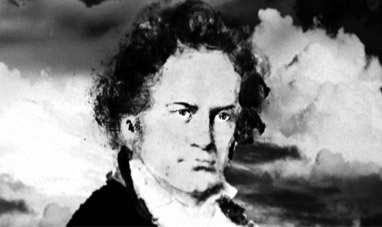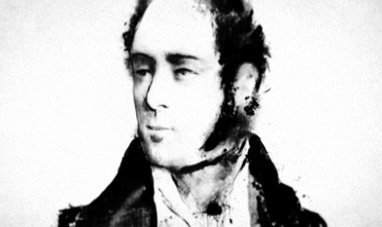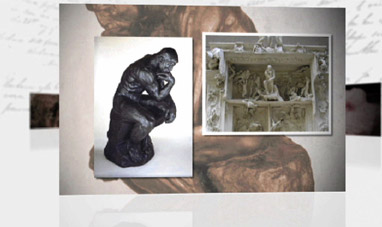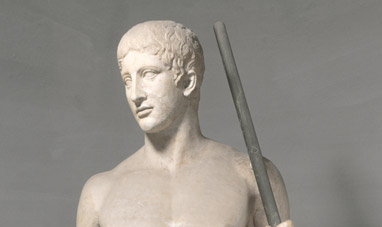Euripides was born in Salamis, Greece, around 485 BC, and is considered one of the major writers of Greek tragedies.
Son of the landowner Mnesarco, or Mnesarchide and his wife Cleito, Euripides lived in Athens during the rule of Athenian politician Pericles. Culture in Athens was flourishing, and Euripides came into contact with some of most important philosophers of his day, including Protagoras, who placed Man at the center of his inquiries, and Socrates, who introduced dialogue as a key method of philosophic investigation.
After studying philosophy for a long time, Euripides dedicated himself to theater, writing some 90 tragedies.
Unfortunately, less than 20 complete works have survived to this day.
His work highlights three different artistic periods. During the first period he dealt with love, creating female characters like Alcestis, Medea and Andromache who address a tragic conflict springing from strong, contrasting passions.
Euripides’ second phase was marked by a growing interest in the Athenian political situation and the drama of war, as can be seen in the tragedy The Trojan Women, completed in 415 BC.
Ultimately, the playwright focused on the powerlessness of men facing a destiny dictated not by benign gods, but by ungovernable fate, for example in his play Iphigeneia in Tauris.
Euripides’ greatest accomplishment was having innovated Greek tragedy by incorporating topics and styles that were much closer to everyday life. Before Euripides, tragedies only portrayed the affairs of heroes and Gods, in situations far removed from everyday life.
Euripides continued to draw his inspiration from mythology, but made his characters up-to-date, in keeping with his times. His protagonists were not perfect people, but rather normal individuals who demonstrate entirely human vices and weaknesses.
He highlighted women, whose tormented sensitivity conflicted with the world of reason.
In all his works, Euripides evoked the contradictions of an ever-changing society. In his tragedies individual motivations often clash directly with Athenian values of family and religion.
Even his linguistic choices were oriented towards everyday reality and commonly used words, far removed from traditional solemnity. His emphasis on human relationships, always the central element in Euripides’ tragedies, enhanced the importance of his dialogue.
And yet Euripides failed to gain important public recognition. Perhaps because of the innovative nature of his works, he struggled to make a name for himself at the theater contests frequently held in Athens.
This lack of success drove Euripides to leave town. He moved to Pella, ruled by the Macedonian king Archelaus, where he died in 406 BC at around 79 years old. Legend has it that the playwright was torn to pieces by wild dogs.
Euripides’ reputation while he was alive is in stark contrast to the fame he achieved after his death. His contribution to theater is undeniable, and even today his works are considered models and a source of inspiration.
Son of the landowner Mnesarco, or Mnesarchide and his wife Cleito, Euripides lived in Athens during the rule of Athenian politician Pericles. Culture in Athens was flourishing, and Euripides came into contact with some of most important philosophers of his day, including Protagoras, who placed Man at the center of his inquiries, and Socrates, who introduced dialogue as a key method of philosophic investigation.
After studying philosophy for a long time, Euripides dedicated himself to theater, writing some 90 tragedies.
Unfortunately, less than 20 complete works have survived to this day.
His work highlights three different artistic periods. During the first period he dealt with love, creating female characters like Alcestis, Medea and Andromache who address a tragic conflict springing from strong, contrasting passions.
Euripides’ second phase was marked by a growing interest in the Athenian political situation and the drama of war, as can be seen in the tragedy The Trojan Women, completed in 415 BC.
Ultimately, the playwright focused on the powerlessness of men facing a destiny dictated not by benign gods, but by ungovernable fate, for example in his play Iphigeneia in Tauris.
Euripides’ greatest accomplishment was having innovated Greek tragedy by incorporating topics and styles that were much closer to everyday life. Before Euripides, tragedies only portrayed the affairs of heroes and Gods, in situations far removed from everyday life.
Euripides continued to draw his inspiration from mythology, but made his characters up-to-date, in keeping with his times. His protagonists were not perfect people, but rather normal individuals who demonstrate entirely human vices and weaknesses.
He highlighted women, whose tormented sensitivity conflicted with the world of reason.
In all his works, Euripides evoked the contradictions of an ever-changing society. In his tragedies individual motivations often clash directly with Athenian values of family and religion.
Even his linguistic choices were oriented towards everyday reality and commonly used words, far removed from traditional solemnity. His emphasis on human relationships, always the central element in Euripides’ tragedies, enhanced the importance of his dialogue.
And yet Euripides failed to gain important public recognition. Perhaps because of the innovative nature of his works, he struggled to make a name for himself at the theater contests frequently held in Athens.
This lack of success drove Euripides to leave town. He moved to Pella, ruled by the Macedonian king Archelaus, where he died in 406 BC at around 79 years old. Legend has it that the playwright was torn to pieces by wild dogs.
Euripides’ reputation while he was alive is in stark contrast to the fame he achieved after his death. His contribution to theater is undeniable, and even today his works are considered models and a source of inspiration.






































